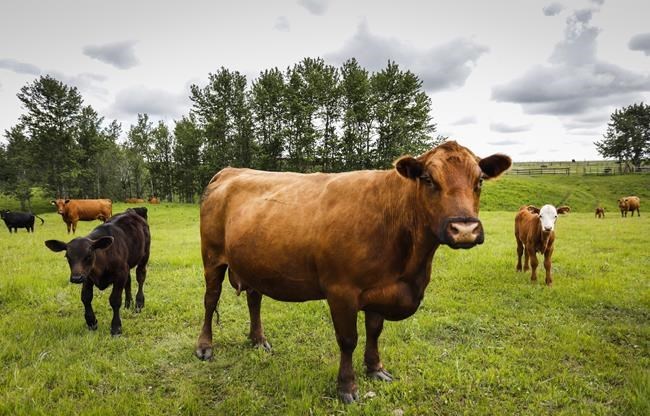CALGARY — Thanks to a decade of rapid growth, there are 279 facilities across Canada creating biogas from methane emitted by agricultural waste, landfills, green bin programs and municipal wastewater treatment facilities.
Those are the findings in a report from the Canadian Biogas Association, which notes that biogas is being used to generate a total of 196 megawatts of electricity and six million gigajoules of renewable natural gas.
The report estimates that Canada is using only 13 per cent of its easily accessible biogas potential, with the biggest untapped resources in the agricultural sector, followed by landfills.
It adds that demand for renewable natural gas is increasing rapidly thanks to climate and clean energy policies at national and provincial levels but that barriers to development include "weak or undefined policy" from various levels of government, along with high capital and operational costs.
The report notes that biofuel projects help fight climate change because they prevent the release of methane, which is 21 times more potent than carbon dioxide as a greenhouse gas, while creating a new fuel source that can replace carbon intensive energy from conventional fossil fuels.
Various utility, energy handling and oil and gas companies have targeted investments in renewable natural gas as a potential way to offset their carbon emissions as carbon taxes rise and new clean fuel standards are rolled out to aid Canada's target of reaching net-zero emissions by 2050.
"Biogas can deliver reliable and clean energy while reducing Canada's greenhouse gas emissions and driving economic development in both urban and rural areas," said Jennifer Green, executive director of the association.
"Research says that Canada could efficiently tap more than eight times more energy from biogas and RNG; that is the goal that the CBA is dedicated to helping achieve."
According to Natural Resources Canada, hydroelectricity accounts for 59.3 per cent of Canada’s generation. Wind is the second largest renewable electricity provider with 3.5 per cent and biomass is the third largest renewable source of Canada’s electricity generation with 1.4 per cent.
This report by The Canadian Press was first published May 14, 2021.
The Canadian Press



